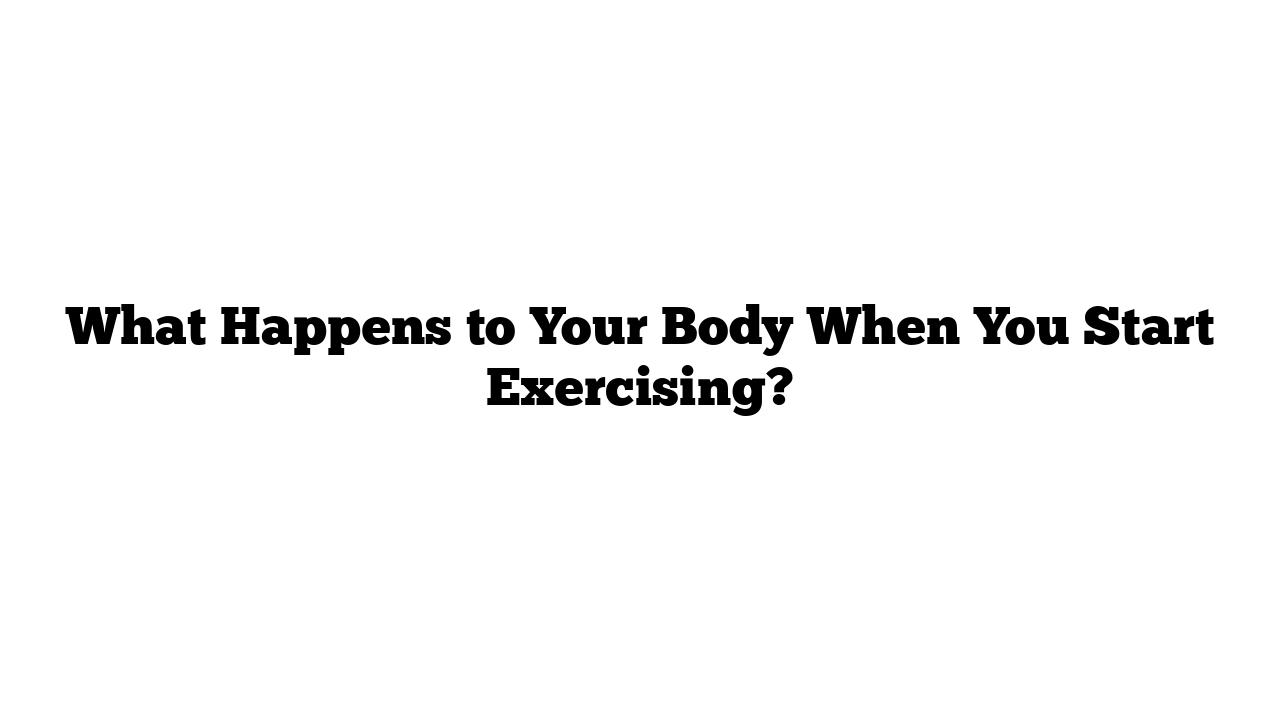Have you ever wondered what happens to your body when you begin exercising? The changes can be remarkable, affecting your physique, muscles, mind, and heart. It’s often said that exercise is like a magical pill for your brain. If there were a drug that could offer the health benefits of exercise, it would be one of the most valuable pharmaceuticals ever developed.
The Power of Exercise
One of the core habits practiced by many successful individuals is exercise. In his book, “The Power of Habit,” Charles Duhigg introduces the concept of keystone habits. These are habits that, when adopted, can lead to significant changes in various aspects of life. Regular exercise is a prime example of a keystone habit, which is why those looking to cultivate self-discipline often commit to a workout routine.
Physical Benefits
We all recognize the physical benefits of exercise: weight loss, muscle gain, and improved fitness. While these changes may take time to become visible, they are well worth the effort. As you start exercising, you’ll likely notice:
- Increased Energy: Initially, you might not see much change, but biologically, significant transformations are happening. After a few weeks of consistent cardio, your energy levels will rise due to a boost in metabolism and an increase in mitochondria—the powerhouses of your cells that convert food into energy.
- Muscle Growth: Over time, your muscles will grow and strengthen, enhancing your performance in daily activities. While this growth may not be immediately visible, you’ll feel stronger and more capable.
- Caloric Burn: Muscle cells burn more calories than fat cells, even at rest. So, after exercising, you continue to reap the benefits long after your workout ends.
Cardiovascular Improvements
With consistent exercise, you can expect a 20% increase in your overall VO2 max after about six months. This metric measures how efficiently your body transports oxygen to your muscles, allowing you to run faster and longer. For example, if you could run a mile in ten minutes, a 20% increase would enable you to run approximately 1.2 miles in the same time.
Regular exercise also strengthens your heart. When your heart rate increases during workouts, it pumps more blood, gradually building muscle strength in the heart itself. This process can significantly reduce the risk of heart disease over time.
Mental Health Benefits
Exercise is not just about physical changes; it profoundly impacts mental health as well. Many people who engage in regular physical activity report feeling happier, more motivated, and less depressed.
The Science Behind It
When you exercise, your body releases serotonin, endorphins, and a protein called Brain-Derived Neurotrophic Factor (BDNF). These substances help reduce stress, elevate mood, enhance learning, and boost confidence.
- Dopamine Release: Increased heart rate during exercise leads to a surge of dopamine, a neurotransmitter responsible for motivation and satisfaction. If you’ve ever felt lethargic or unmotivated, it could be due to a dopamine deficit. Exercise can rectify this, helping you feel more energized and driven.
- Stress Relief: Endorphins, often dubbed “feel-good hormones,” counter stress, lifting your mood and enhancing your overall sense of well-being. Regular workouts can create a consistent supply of these hormones, leaving you feeling supercharged and ready to tackle daily challenges.
Improved Sleep
Exercise can also lead to better sleep. While the connection isn’t always straightforward, the reduction of anxiety and depressive symptoms through physical activity can alleviate insomnia. Working out before bed may even promote better sleep due to the drop in body temperature that occurs post-exercise.
Building Confidence and Self-Worth
Beyond the physical and mental health benefits, exercise fosters a renewed sense of self-worth. As you commit to a healthier lifestyle, you’ll likely feel more proud and confident, which can empower you to take risks you might have avoided before—like asking out that special someone.
A Lifelong Commitment
Regular exercise, even just three hours a week, can extend your lifespan and enhance its quality. It can improve your mood, confidence, and overall health while reducing the need for medical interventions.
So, why wait? Start your exercise journey today, and experience the transformation for yourself!
